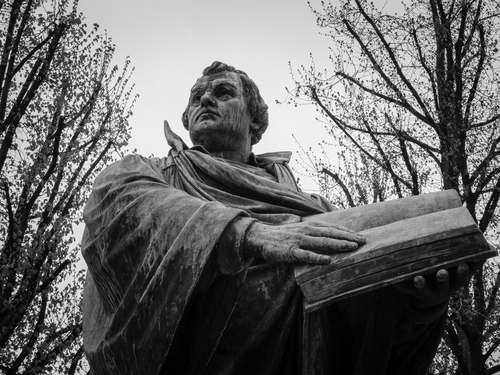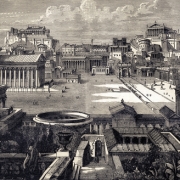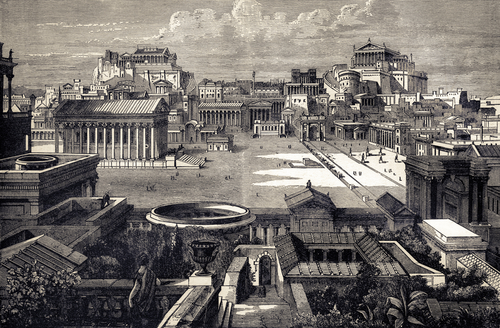The Sinfulness of Sin
Your year-end generosity to Enduring Word is appreciated. Click here to donate.
But sin, taking opportunity by the commandment, produced in me all manner of evil desire. For apart from the law sin was dead. (Romans 7:8)
Romans 7 powerfully shows the weakness of God’s law when it comes to solving our sin problem. In fact, sin within us has a way of taking opportunity by the commandments. Paul described the way in which the warning “Don’t do that!” may become a call to action because of our sinful, rebellious hearts. It isn’t the fault of the commandment, it’s our fault.

In his book Confessions, the great theologian of the ancient church Augustine described how this worked in his life as a young man. I’ll paraphrase a bit from his well-known book: “There was a pear tree near our vineyard, heavy with fruit. One stormy night we naughty youths planned to steal the pears. We took off a huge load of them – not to eat them, but to throw them to the pigs, but we ate just enough to have the pleasure of forbidden fruit. They were nice pears, but it wasn’t the pears that my miserable soul craved, for I had plenty better at home. I picked those pears just to steal them. The only feast I got was a feast of iniquity, and I fully enjoyed it. What was it that I loved about stealing? Was it the pleasure of acting against the law? The desire to steal was awakened simply by the prohibition of stealing.”
What Augustine wrote about the pears rings true. Once God draws a boundary for us, we are immediately tempted to cross that boundary – which is no fault of God or His boundary, but the fault of our sinful hearts.
So, sin within us can take opportunity by the commandment. The weakness of the law isn’t in the law – it is in us. Our hearts are so wicked that they can find opportunity for all manner of evil desire even from something good like the law of God.
There was a beach hotel in Florida worried that people would fish from the balconies. They put up signs, “NO FISHING FROM THE BALCONY.” After that, they had constant problems with people fishing from the balconies, with lines and sinker weights breaking windows and bothering other guests. They finally solved the problem by simply taking down the signs – and no one thought to fish from the balconies.
Because of our fallen nature, the law can end up working like an invitation to sin. This shows how great the evil of sin is – it can take something good and holy like God’s law and twist it to promote evil. Sin warps love into lust, an honest desire to provide for one’s family into greed, and the law into something that ends up prompting sin.
As Paul so beautiful shows in Romans, this is why we need Jesus. God’s law is good and has its purpose. But only Jesus can solve our sin problem. Look to Him today.



















